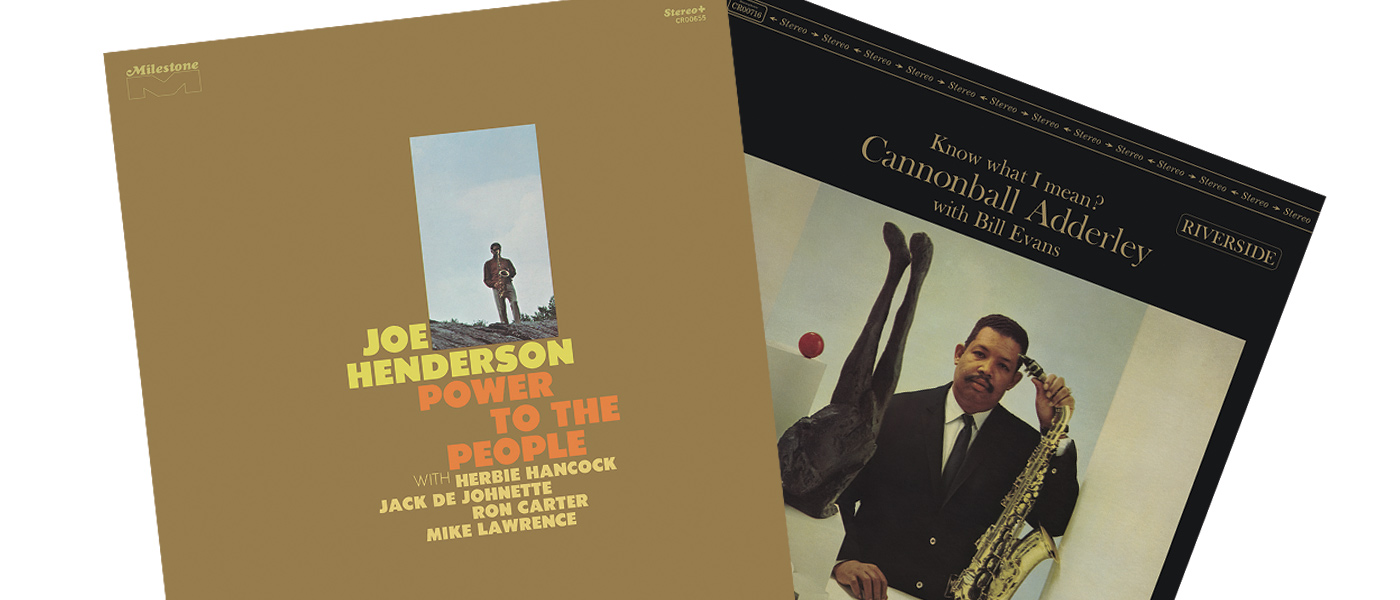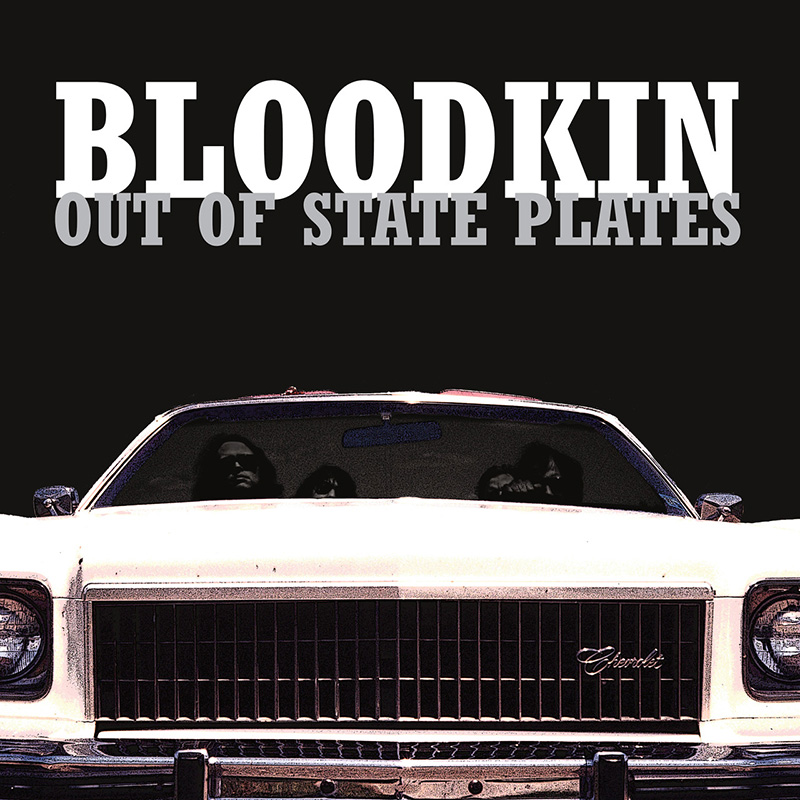
I can think of a million meaningful records that anchor me to specific portions of my personal history. But none that transports me so quickly and completely to a specific era as Bloodkin’s Out Of State Plates. The band’s first collaboration with producer David Barbe was officially loosed upon the public at large in 1999, but I’d had an advanced cassette copy for what felt like two years before that. I didn’t listen to much else. I’d already been consumed with the band’s live performances for years prior, and I quickly recognized Plates as their first studio release to capture the raw vitality of those barroom blitzes that were already legendary in and around Athens, Georgia at the time. My ears finally started ringing after a Bloodkin show at the Brandyhouse in Atlanta one night and they still haven’t stopped. Totally worth it.
This was a heady time in the life of the author. I’d completed my undergraduate coursework at UGA in ’97, but what I’d accomplished could hardly be described as complete. Or work. Unless you counted my efforts towards establishing enduring social connections of questionable repute and soaking up as much live music as possible. I worked towards cultivating several unhealthy habits and routines that, thankfully, were impermanent. And I eventually started working towards achieving some clarity around what I might become and what I wanted out of life, which is an ongoing process that has far outlived any of the pursuits described previously.
I’d realized, by 1998, that I’d squandered my experience as a student by not achieving even the vaguest idea of what I might want to do after graduation. I’d forged zero relationships with any professors or instructors, applied for nary an internship, and specialized in nothing applicable to the day-to-day aspects of a career-oriented endeavor. I was leading the Rock ’n Roll lifestyle without the dedication to the art of Rock ’n Roll. I was Rock ’n Roll adjacent, but Bloodkin was living it, buddy. Full throttle. They’d set their controls for the heart of That Life, and, like my resulting tinnitus, they never relented.
Out Of State Plates was not the first of their albums to achieve greatness, but it was the first to capture the totality of Bloodkin’s truth as a band. Good Luck Charm documented some of their strongest songwriting, but the production was a little brittle and dry. It was an accomplished first pass at severe self-expression. CreeperWeed is a masterpiece of acoustic brilliance and it expresses a profound depth of a million emotions but is not necessarily the fullest representation of The Bloodkin Experience. As a brotherhood devoted to a lifetime of creating and documenting Rock ’n Roll Music, Danny Hutchens and Eric Carter truly initiated a remarkable run of the most electric caliber with Out Of State Plates.
And now it’s been released on vinyl for the first time. Not only that but there are also additional tunes from the same sessions, which necessitated a rejiggering of the songs’ running order. And the work was remixed in 2020 and has now been remastered for the vinyl presentation. What’s old is new again, and there are surprises within. More than a few, but honorable mention goes to the general boost to Carter’s background vocals, the more defined hand claps during “Transfusion,” and – my personal favorite – the scripted ending to “Tennessee Williams,” which replaces the original’s fadeout that was always vaguely troublesome to me.
The strength of the original work has only been enhanced by the inclusion of the two additional songs. These are not “bonus tracks.” They’re integral. Carter’s dual with Michael Houser during the quasi-coda to “Sing About Love” creates one of the most explosive electric guitar flare-ups since “Marquee Moon.” The tension and inevitability that builds to the launch centering “Morning Chrome” swirls and promises and threatens such that the listener just surrenders to what’s next. Buy the ticket, take the ride. Come hell or high water.
That kinda sums up Bloodkin, generally. They’ve encountered unspeakable personal losses while relentlessly chasing and crafting their musical monuments. They recently performed another of their annual December celebrations in Athens surrounded by longtime supporters, friends, and family – including Danny’s daughter singing her dad’s parts with Carter standing by in proud support while straddling actual generations. Bloodkin is no longer a band so much as an ideal. A living testament to the power of persistence and of music as a tool for transcendence. Bloodkin is its own ethos.
And all of that is reflected in the sounds found in Out Of State Plates. They’ve never been more clearly defined or more accessible. Hearing the details rise out of Barbe’s newest mix almost a quarter of a century after the initial deluge is like looking back on an era of beautiful confusion with newfound clarity. Because it is. The vinyl presentation and Barbe bring that all out. The pressing is near perfect and stays out of the music’s way. If you love the promise of Rock ’n Roll, and the very voluptuousness of life’s eternal flow, Out Of States is your soundtrack if you want it. Or your harbor if you need it.
Secrets Sponsor
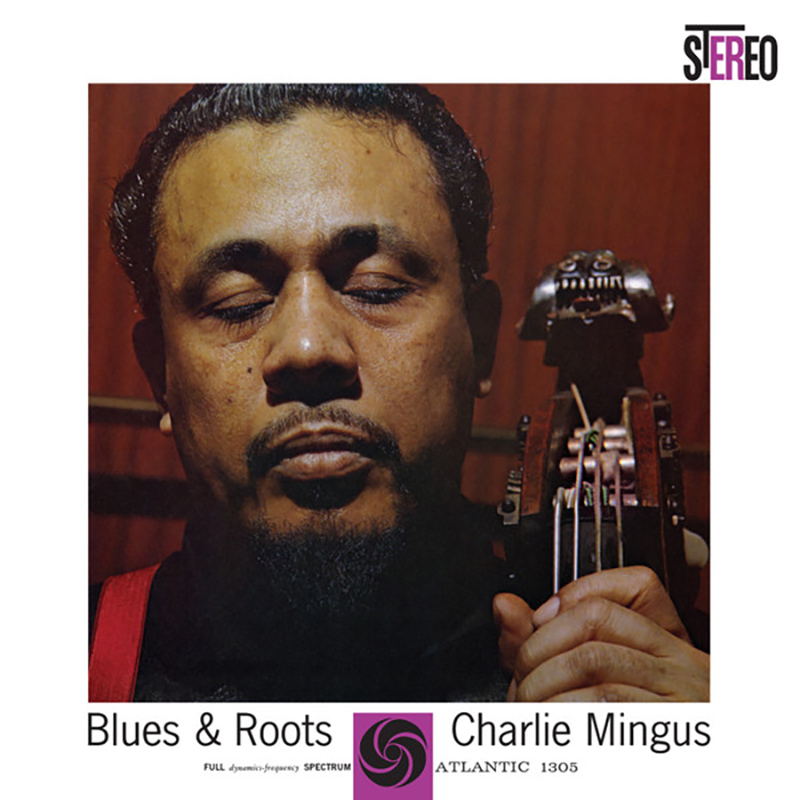
Charles Mingus was legendarily cantankerous. I’m always a bit uneasy with assigning such designations to members of marginalized groups in general, and especially artists who worked and toured during the middle part of our last century because that era coincided with a million separate injustices that still linger in our atmosphere like some smelly smog. We know it is damaging to our collective health, but we somehow can’t quite purge the stink entirely. For certain, persistence legitimizes a considerable degree of irascibility. It is also worth noting though that Mingus was one of the only players ever to have been fired directly by Duke Ellington. So… fiery, maybe? That feels better. And it sounds right when Blues and Roots is blasting towards your ears like some sort of Gospel-spreading avenger unleashed from the fingers and souls of some of history’s most compelling musical masters.
And it absolutely sounds righteous, riotous even, when Blues and Roots have been given the Atlantic 75 Series treatment. This is my first exposure to any records from this string of releases, and I was blown away by the quality immediately upon dropping the needle into the groove that carries “Wednesday Night Prayer Meeting” out into the world. The clarity and detail were shocking, the humanity and life evident from the moment the music starts. Tom Dowd played the primary role in capturing these sounds the first time around but we can thank Kevin Gray for breathing new life into the tapes and QRP for manufacturing these two 45 rpm discs so lovingly.
The critic in me wishes that some of the panning between instruments was a bit less pronounced. Specifically, I’d enjoy having Horace Parlan’s piano and Dannie Richmond’s drums a bit more centered. But the listener in me isn’t especially concerned with any of that once things start swinging. And the band doesn’t wait to get to that. It happens right away. By the time “Cryin’ Blues” blasts into being, the template is pretty clear. These works won’t involve any of Mingus’s more challenging structures. The songs are animated by the players’ energy and commitment to what’s being created in the moment. I haven’t had the opportunity to engage with this record in the company of friends, and it’s killing me. Like having to live alone with the Key to Eternal Happiness or something. I’m barely kidding. I experience borderline elation during “Moanin’” and much of the work as a whole. The template is something akin to one later adopted by the Pixies and famously co-opted by Nirvana. We are considering, of course, the LoudQUIETloud approach. In the hands of Mingus’s Jazz Workshop members, the technique blazes into orbit with structured horn parts supporting multiple horn soloists often playing concurrently and with great abandon. In this context, the term “soloist” seems a bit loose. But with styles as distinctive as Art Pepper’s or Booker Ervin’s or Jackie McLean’s, for crying out loud, what would you call the players otherwise? Co-conspirators? Collusionists?
As an alternative to the “alternative” approach described above, a theme may be introduced by the “foundational” horn section with the soloists adding simpler variations on top. When positioned next to the rowdier material, these works (“My Jelly Roll Soul,” for instance) serve as a sort of rest between rounds. They give the listener a moment for the cut man to apply some pressure to that expanding gash above the eyebrow. Because the fight will resume shortly. And Mingus’s gang is swinging with the most beautiful brass knuckles you’ve heard.
I was hesitant to pony up the $60 needed to acquire this record, and now I’m tempted to buy a safety copy in case of disaster. The ongoing series of releases has some titles in the queue by a retinue of badasses like Ray Charles, Otis Redding, the Velvet Underground, John Coltrane, and Buffalo Springfield. And also, some stuff by Genesis, Phil Collins, Foreigner, and… Matchbox Twenty? You do what you want. I’ll probably snag a Dr. John record next and wait for the others to roll out monthly throughout 2024. If the releases are going to be somewhere nearly as strong as Blues and Roots, you should work some into your budget if you can.
Secrets Sponsor
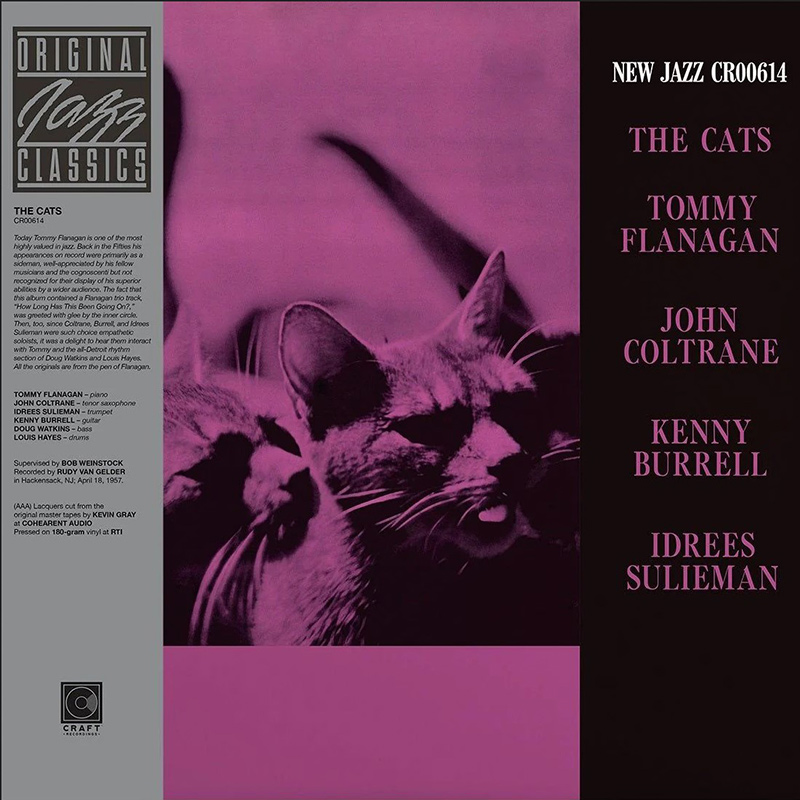
Similar to Mingus’s Blues and Roots, the songs that comprise The Cats aren’t as demanding of the listener as what would come later for Coltrane, specifically. Despite Flanagan’s billing as the band’s nominal leader, his role is more supportive than outwardly directional. Coltrane’s solos, as well as those of trumpeter Idrees Sulieman, take the music in its most compelling direction even while staying within the relatively safe confines of these simpler compositions. There’s a bit of a “My Turn / Your Turn” taste to the solos. More of a “raisin in the bun” than “the ocean as a wave” feel. The ensemble’s playing on the main themes, however, are tight and solid and function as a single apex organism. For my money though, Gershwin’s “How Long Has This Been Going On?” is the standout here, and it’s performed as a trio with just Flanagan’s piano atop the Detroit rhythm section. It’s like sunlight streaming through your blinds while you read on the couch under a cashmere blanket. On Sunday. When Monday is a holiday.
The single session that produced The Cats was recorded by Rudy Van Gelder one day in 1957. All of the detail, clarity, “aliveness,” and space that one would expect are in play here. Kevin Gray cut the lacquers from the original tapes for this Original Jazz Classics reissue according to the branding, and his initials are clearly visible in the dead wax alongside those of Matthew Lutthans’s who works out of Gray’s Cohearant Audio facility and elsewhere. The sonics are sublime, RTI’s pressing perfect and flat. If you’re looking for some Hard Bop that’s not going to overwhelm your nervous system with intense emotional peaks and valleys, curl up with The Cats and purr along until you drift away.
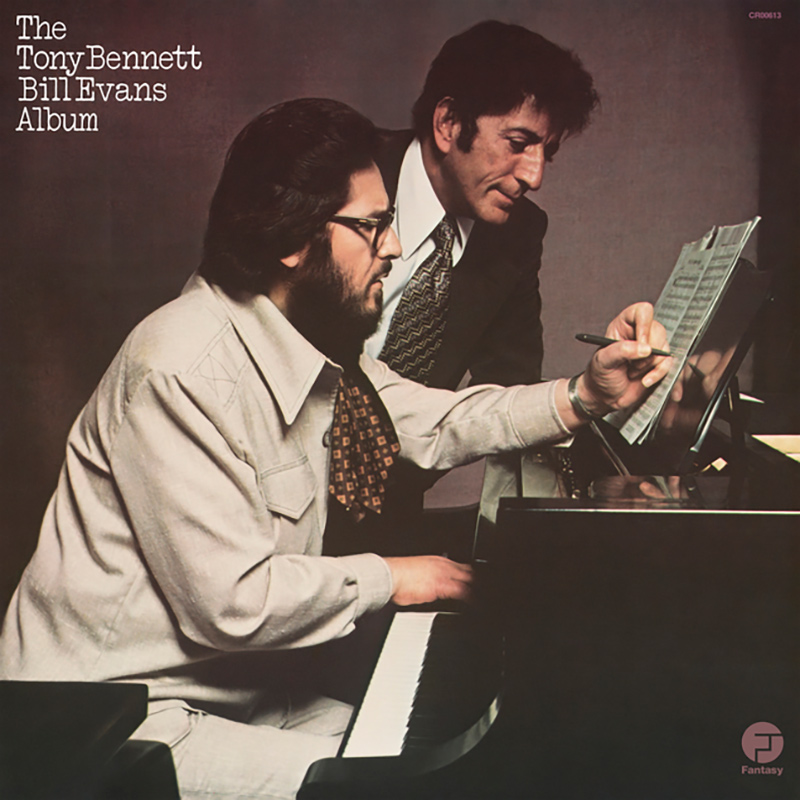
Not to overwhelm the reader with Craft content, but in this age of compromised quality control, I tend to ride whoever has the hot hand until the wheels fall off. To that end, I also wanted to touch on Craft’s recent reissue of a record that I’d almost certainly never have explored without their imprimatur. Because…
I don’t spend a ton of time in the “Vocalists” section of record stores. It seems to be a bit of a catch-all for artists that I am actively disinterested in. Maybe that’ll change as I age, but I’m probably not due to crank any Mel Torme tunes for a while. The Tony Bennett/Bill Evans Album though… that’s different.
Enough so that I might have to reconsider my stance. Hearing Bennett’s precise phrasing, immaculate pitch, and tasteful restraint floating above Evans’s sympathetic and sensitive playing was something I didn’t know I needed in my life. There’s none of the bombast and bloat that makes much of “Vocal Jazz” such a non-starter for me. The album cover photo of the two artists at the piano pouring over sheet music and taking notes creates a picture of spontaneity and comfort with the collaborative process that’s a joy to even consider. Especially with the results here, which would count as a resounding success to almost any reasonable listener.
All of the same stats apply to Bennett/Evans as to The Cats. AAA lacquers cut by Kevin Gray (solo in this instance) from the original tapes and pressed at RTI. This was the first title from the OJC series that I had to manually flatten due to a dish warp, which is why it’s receiving a favorable mention rather than a featured review. This is an industry-wide issue, and it’s worth noting that the Atlantic 75 series is reportedly not immune either. I’m still all in on what’s happening and what’s happening next for OJC and A75. Because the sounds are worth it.


